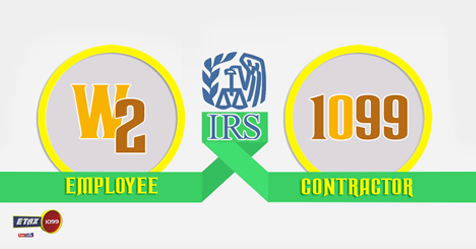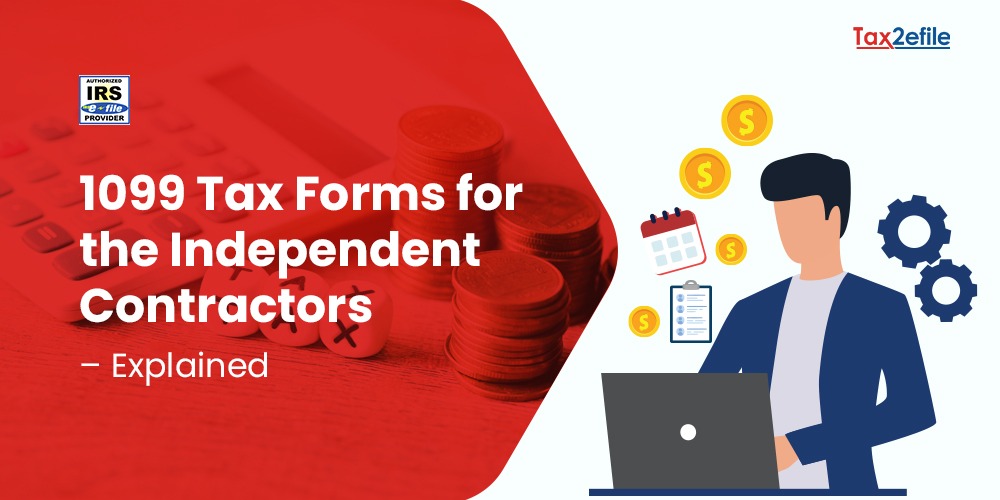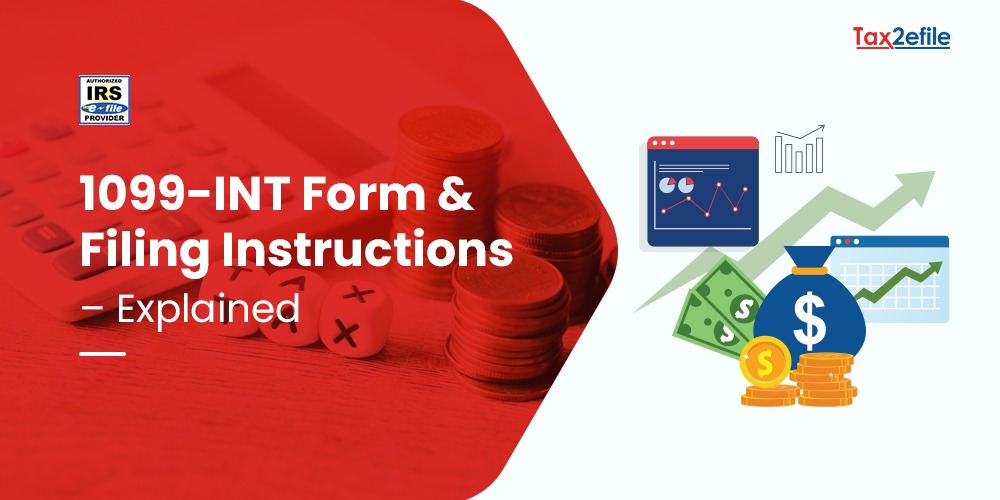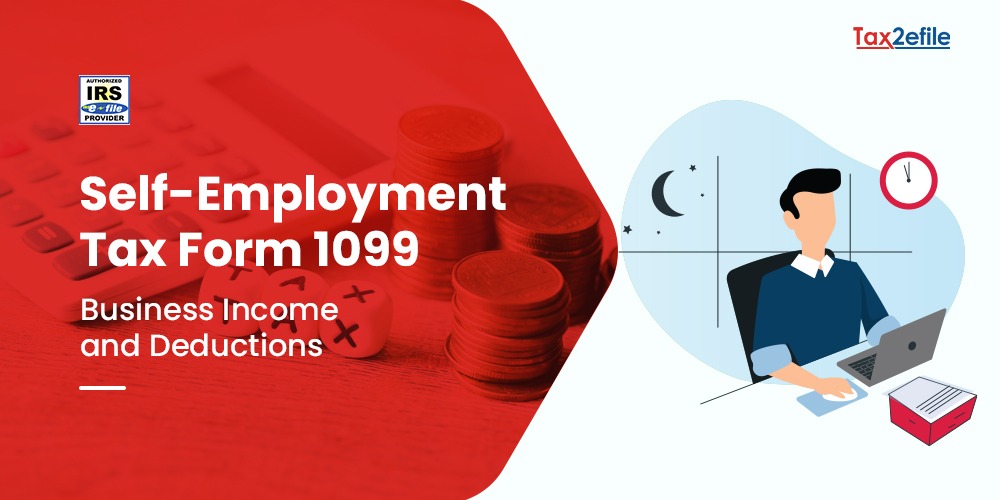- July 3, 2019

If you earn money as an independent contractor, the IRS considers you as a “business of one”. It is similar to a company that withholds the taxes automatically from the employee’s paychecks; here you need to withhold your own taxes.
Having said that the independent contractor is like a business of one, you also get the expenses deductions such that you can lower the tax amount you pay to the IRS. You can itemize the deductions that affect your business profit or loss (stated on the Schedule C), when you are calculating the 1099 taxes quarterly or year-end.
So read this blog to give a picture of the most commonly used 1099 tax deductions for the independent contractors.
Table of Contents
Independent Contractor
An independent contractor differs from an employee’s role and responsibility. In addition to that, there is a huge difference in their taxes too. The independent contractors do not have any taxes that are taken out of their wages like the employees. However, they need to remit the taxes by themselves.
Before an independent contractor starts the work, you need to obtain a tax registration certificate. To do so, check with the related county and your city whether you need to register before you start your business. When you start your work, the employer fills out the federal form W-9 and requests for the Taxpayer Identification Number (TIN). In that case, you need to provide your Social Security Number (SSN) or your Taxpayer Identification Number. The employer uses this TIN to report your payments to the IRS.
1099 Tax Deductions
1. Transportation Deductions:
Car expenses provide most sizable write-offs. You can write off your driving activity while working, going to meet the clients or driving out of town for any business related stuff. From 2016, the standard mileage rate lets you to write up to 54 cents off of every mile when you drive for your business.
When you are using this deduction, ensure that you are maintaining adequate records because IRS audits them when required.
2. Home Office Expenses
When you are running your business from your home, you can write off a portion of your home expenses. To use this condition you have two important conditions.
- Primary place of Business: In this case, your home must be the main place where you can conduct a major part of your independent business. If you work out of home even sometimes, then you cannot use this deduction.
- Exclusively used for Work: The place you use within your home should be exclusively used for office work.
-
3. Office Supplies:
The supplies that you purchase for your business comes under deduction. Office supplies, new messenger bags for couriers, food & water for the passengers in the car are the examples of the supplies that come under deduction. Any supplies you rent or lease can also be included.
4. Cell phone Bills:
When you are using your cell phone to contact your business and your personal use, then you can add a portion of your mobile bill as a tax write off. However, here you need to estimate the percentage of your usage, personal versus business. Therefore, you can deduct the percentage of your phone bill related to business.
5. Business Trip:
When you travel related to your business, you can collect all those receipts of air tickets, cab, hotel, rental cars, and other related expenses. These expenses are deductible when you travel for a business purpose.
6. Parking Expenses:
The parking expense could add up to certain contract work. When you regularly pay for parking and then safeguard those receipts. This can also add as a tax write off.
7. Fees, Dues or Subscriptions:
When you are paying for any trade organizations, services or publications that are required for your business, then those items also come under deductions. For instance, if you have a certification, which needs a fee to maintain, then you can add that as well in this 1099 deductions.
Apart from those mentioned above, there are more 1099 deductions that an independent contractor can count hence ensure to check with our customer support team to best understand better. The most important point to note from the blog is to maintain the records of your expenses, which you are going to apply for deductions. This simple act can save you a lot of money.


